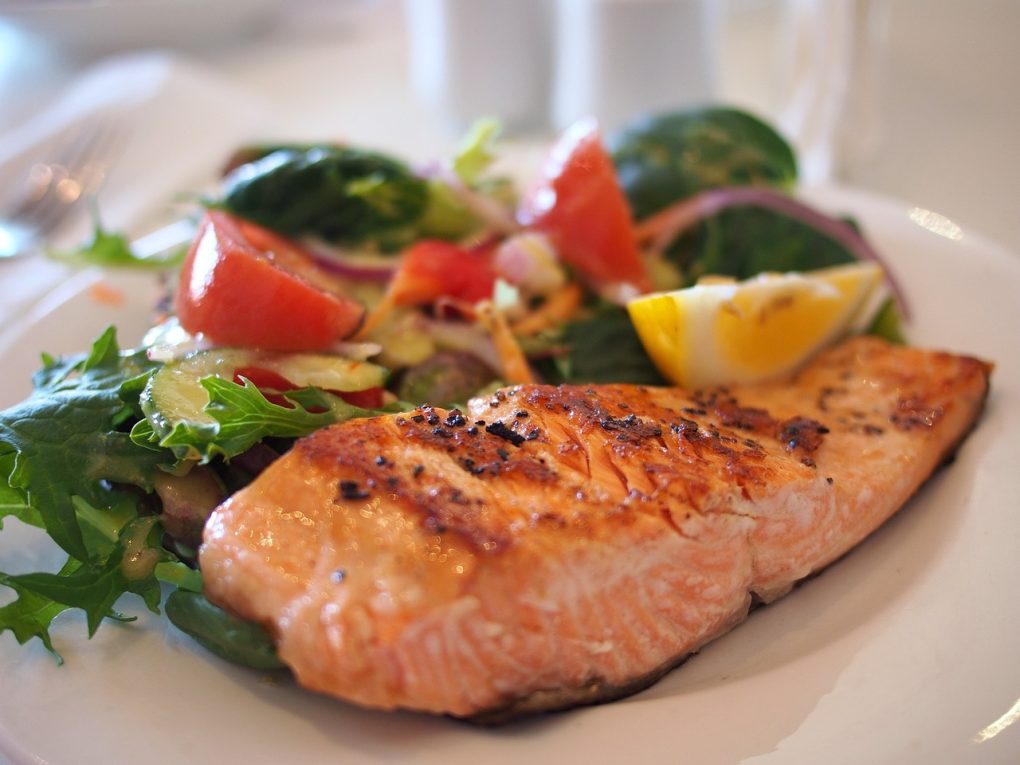
When you are trying to save money at the grocery store, freezing food is a great way to make sure that you are not wasting food. Salmon is a delicious and healthy food that many people enjoy, but can you freeze it? In this comprehensive guide, we will cover the answer to this question and all you need to know about storing and preserving salmon.
- What is the Best Way to Freeze Salmon?
- How Long Does Frozen Salmon Last?
- What Happens if You Thaw Frozen Salmon?
- How Should You Cook Frozen Salmon?
- Are There Other Ways to Preserve Salmon?
- Is There a Way to Store Fresh Salmon?
- What Happens if You Eat Expired Salmon?
- Are There Any Benefits to Eating Fresh Salmon?
- Conclusion
What is the Best Way to Freeze Salmon?
The best way to freeze salmon is to wrap it tightly in plastic wrap or aluminum foil. Make sure that all air has been removed from the package before sealing it. You can also place the salmon in an airtight container or vacuum-sealed bag. For best results, the salmon should be placed in the freezer as soon as possible after purchase. This will help keep the salmon fresh and preserve its flavor.
How Long Does Frozen Salmon Last?
Frozen salmon can last up to six months in the freezer before it starts to lose its flavor and texture. To ensure that the salmon stays fresh for longer, make sure that you store it in an airtight container or vacuum-sealed bag. Additionally, you should mark the package with the date that it was frozen. This will help you keep track of when the salmon was placed in the freezer and when it should be used up.
What Happens if You Thaw Frozen Salmon?
If you thaw frozen salmon, you will need to cook it within 24 hours. If you do not plan to cook it right away, you can refreeze the salmon as long as it has been properly stored in the freezer. However, it is important to note that refreezing the salmon can affect its texture and flavor.
How Should You Cook Frozen Salmon?
Frozen salmon can be cooked in a variety of ways. You can bake, grill, fry, or poach the salmon. To ensure that the salmon is cooked through, it is best to use a thermometer. The salmon should be cooked to an internal temperature of 145°F. Additionally, make sure that you do not overcook the salmon or it will become dry and lose its flavor.
Are There Other Ways to Preserve Salmon?
If you are looking for another way to preserve salmon, you can try curing it. Curing is a process in which the salmon is salted and dried in order to preserve it. This method of preservation helps to extend the shelf life of the salmon and also gives it a unique flavor.
Is There a Way to Store Fresh Salmon?
If you have fresh salmon, it should be stored in the refrigerator. It should be wrapped in plastic wrap or aluminum foil to keep it from drying out. Additionally, you should place the salmon in a container or on a plate and place it on the lowest shelf of the refrigerator to keep it away from other foods.
What Happens if You Eat Expired Salmon?
If you eat expired salmon, you could experience food poisoning. This is because the salmon may contain bacteria or parasites that can make you sick. It is important to always check the expiration date before eating any food.
Are There Any Benefits to Eating Fresh Salmon?
Fresh salmon is a healthy and delicious food that can provide you with many health benefits. It is a good source of omega-3 fatty acids, which can help lower cholesterol levels and reduce the risk of heart disease. Additionally, fresh salmon is high in protein and low in calories, making it an excellent choice for those trying to maintain a healthy weight.
Conclusion
In conclusion, salmon can be frozen to extend its shelf life. However, it is important to make sure that you properly wrap and store the salmon in the freezer to ensure that it stays fresh. Additionally, make sure that you only eat fresh salmon that is within its expiration date. Eating expired salmon can make you sick and should be avoided.
